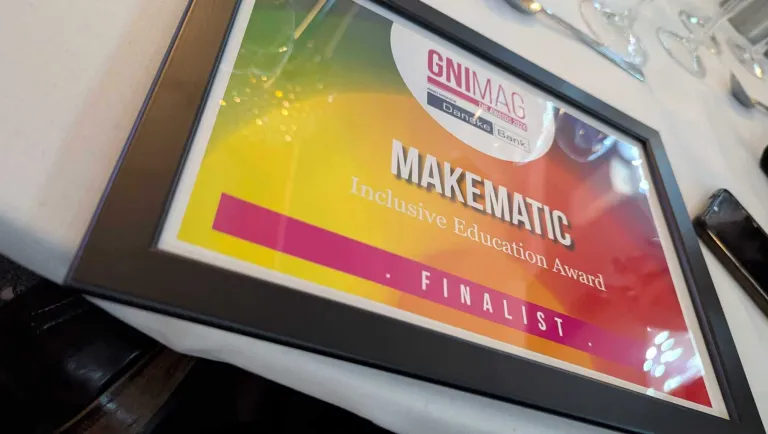
How to Win Over Industry Partners to Support Your Classroom Projects
9th August 2017
Most schools will build relationships with local companies for work experience and classroom talks. But how do you establish these relationships if they don't already exist? And what if you have a grander project that you need local companies to get involved in?Over the last few years, I've worked with dozens of companies from Seagate to Microsoft to develop educational outreach initiatives. For the most part, companies want to support educational initiatives - particularly in their local communities - but establishing those relationships might seem daunting.Here are a few tips:1 - Understand "why"There are lots of reasons companies support local schools and educational initiatives. They may have a formal corporate social responsibility programme. They might like to invest in the local workforce of tomorrow. Or it could be a great way for them to provide their staff with new opportunities and a chance to give back to their local community. Of course, they might just want to get an article in the local paper or some great pics for the staff newsletter.Understanding why a company might want to work with you is an important starting point. Try looking for similar initiatives that they may have been involved with in the past as a guide to what they might engage with in the future.And of course, take some time to consider what you can offer them. Will you book a photographer from the local paper? Can you write up a short case study for them to use internally?2 - Start with a good ideaThis may sound obvious, but an innovative and exciting idea will get more attention from potential industry partners. Once you have a good idea, look for companies with an obvious alignment to that idea. For example, if you've developing a 3D printing project, try to find local manufacturing firms that use 3D printing to prototype their ideas.3 - Be clearMake sure your "ask" is clear. Companies get approached all. the. time. to get involved in various initiatives - if it's not super clear exactly what you're asking them to do, don't expect them to come asking for more info.I'd suggest writing a succinct, (max one page) document that explains what you'd like to do and exactly how they would be involved. Remember that the more ambitious your project, the more likely that there'll need to be some management sign-off - providing clear documentation makes it easier for your potential partners to communicate and "sell" your ideas internally.4 - Value their timeStaff time has a monetary value. It might seem simple to ask a company to send a few staff members out to do a talk at a school, but that probably equates to hundreds of dollars of costs. Do whatever you can to minimise staff time costs. For example, could that class talk be done via Skype?5 - Consider scaleGetting collaborations with schools right is a challenge for many companies and requires an investment of time, energy and resources. Consider how you might help potential partners get more "return on their investment" by creating opportunities for successful projects to scale up.6 - Make it easy & funOne of the biggest challenges that companies face is getting their staff involved. People are busy. Volunteering outside of work means time away from pressing projects and looming deadlines - so it might not always be top of the priority list. At the very least you should try to make the process as easy as you can and look for ways to make it fun. Do be as flexible as possible with things like dates and times. Do not treat an invited guest as a substitute teacher!7 - Talk to the right peopleSome, particularly larger, companies may have a person responsible for corporate social responsibility programmes or community engagement. If not, someone from PR/marketing is a good shout if your project will generate some publicity. HR is a good choice if you need lots of staff volunteers.But no matter who you contact, having an extra "in" will help. Is there a member of staff that's a former student at your school? Does anyone sit on the PTA or have a kid in your class? If you can find an "in", ask them to introduce you to the most appropriate person to talk to, ideally with a CC'd email.8 - If at first ...No matter how good your idea or how well thought through your approach, sometime it just not a good fit. Don't take it personally, there are lots of reasons that might be outside your control. The best bet is to try and build relationships with more than one company at a time and avoid putting all your proverbial eggs in one basket.9 - Remember you're not the only oneDo keep in mind that teachers from across your city are probably reaching out too. Be patient.10 - Cultivate good relationshipsWhen you do strike up a useful partnership, investing time and energy into building and maintaining it is essential. Make sure to thank people for their help. Invite them to events at the school, and send them updates on how the project - and kids - are progressing. I still get lovely invites from schools I worked with years ago. One even sent a little plaque as a"thank you" for doing a talk.As a final thought, people like working with people they trust. Establishing strong working relationships with local companies - relationships where everyone benefits - makes it so much more likely that those companies will happily jump on board with your next big idea. Or better yet, start bringing you projects for your class and students to get involved in.
Let's Work together
We’re a team of media professionals and educators that want to inspire a generation of global learners through smart, engaging educational content they love.
More about our services


